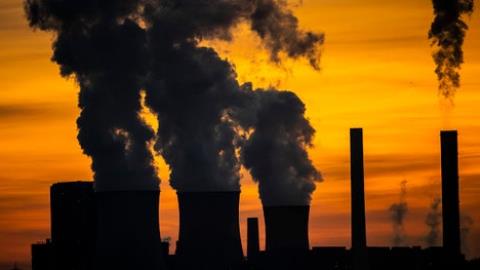Leading economists, bankers, and investors have urged G20 leaders to implement ambitious regulations to avert a global financial crisis spurred by ongoing investments in the fossil fuel industry.
In a letter preceding the G20 summit, experts from various organizations—including Finance Watch, the European Federation of Ethical and Alternative Banks and Financiers (FEBEA), and the Association of Ethical Shareholders Germany—warned that “the climate crisis is creating a feedback loop where financial institutions are funding activities that intensify irreversible climate change. This, in turn, heightens their exposure to climate-induced financial crises.”
This appeal follows criticism from the United Nations directed at former Bank of England governor Mark Carney, who is now co-chair of a group of financial firms working to address climate change. Carney faced backlash for withdrawing from an initiative aimed at phasing out fossil fuels, citing antitrust concerns amid an energy crisis and a shifting political landscape in the US that complicates the disinvestment from fossil fuels.
A report from Finance Watch highlighted that the 60 largest global banks have approximately $1.35 trillion in exposures to fossil fuel assets that could become stranded as the world transitions to a carbon-neutral economy. In the UK, major banks are reported to have around $97 billion in similar exposures.
Julia Symon, head of research & advocacy at Finance Watch, stated, “We are urging global policymakers to take precautionary measures to protect taxpayers from imminent risks linked to fossil fuel financing and the potential chain reactions in the financial sector. Losses will be unavoidable as governments work to move away from a fossil-based economy.”
The open letter has garnered 129 signatures from individuals and 61 organizations, recommending that investments in fossil fuels be classified as “high risk.” The letter notes that “the current practice of not treating banks’ fossil fuel exposures as higher risk is effectively a subsidy to the fossil fuel industry,” with recent estimates quantifying this support at around $18 billion annually.
Daniel Sorrosal from FEBEA remarked, “Current financial instability pales in comparison to the catastrophe that will ensue when the fossil fuel sector collapses during the transition to net zero. Even the most environmentally conscious banks could find themselves caught in the turmoil. G20 nations must act to defuse this ticking time bomb and protect the global financial system.”
As concerns over greenwashing rise, there is growing consensus that regulatory intervention is crucial for prompting banks to accelerate their exit from the fossil fuel sector. During a panel discussion at COP27 in Egypt, Carney emphasized that policymakers should “align financial regulation with net zero” by mandating net zero transition plans.
For more information about Finextra’s fifth Sustainable Finance Live conference and hackathon, taking place on November 29, visit the event page.
